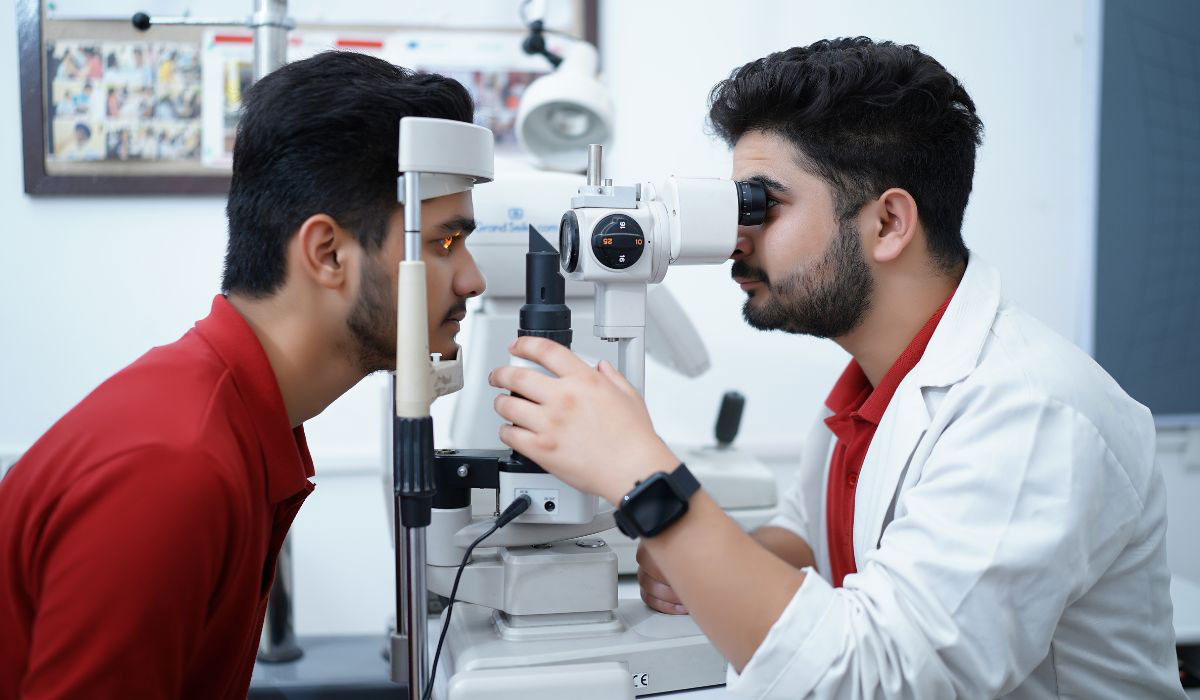The landscape of optometry practices is expected to undergo significant transformations by the year 2024, according to predictions. As we look into the future, it is clear that technology will continue to play a significant part in determining the manner in which eye care professionals provide their services. Optometrists are required to adapt to and accept many advances in order to deliver improved patient care. These innovations include advancements in telemedicine as well as the use of artificial intelligence to assist with diagnoses.
It is impossible to deny the growing significance of personalized medicine within the field of optometry. By the year 2024, the concept of personalizing treatments and prescriptions to an individual based on their genetic composition or lifestyle characteristics is no longer a theoretical concept but rather an immediate reality. Through this shift toward more tailored approaches, a break from solutions that are universally applicable is being signaled. Instead, precision-based therapies that produce superior outcomes for patients are being implemented.
Furthermore, in this digital age, consumer expectations are constantly shifting, and optometry practices need to be able to keep up with the changing trends in order to remain competitive. Because of the proliferation of online retail giants entering the eyewear market, traditional brick-and-mortar businesses are being forced to differentiate themselves from their competitors by providing customers with one-of-a-kind experiences and specialized services that cannot be replicated entirely online.
Visionary trends in the year 2024:
Teleoptometry: Telemedicine has completely altered the methodology by which medical care is provided, and optometry is not an exception to this trend. Through the use of teleoptometry, optometrists are able to provide virtual eye exams, conduct remote consultations, and even prescribe glasses or contact lenses digitally. This pattern is gaining more and more widespread acceptance, particularly in more rural locations or among people who have difficulties moving around.
The practice of optometry is undergoing a transformation as a result of the applications of artificial intelligence (AI) and big data analytics, which are enhancing the diagnostic accuracy and treatment outcomes. Artificial intelligence algorithms are able to examine big datasets, which may include patient history and diagnostic testing, in order to establish individualized treatment programs. Additionally, this technology helps in the early detection of eye illnesses, which improves the care that patients receive.
Myopia Management: As the incidence of myopia continues to rise across the world, there has been an increased emphasis placed on the development of myopia management solutions. The evolution of myopia in youngsters is being slowed down by optometrists through the use of techniques such as orthokeratology and atropine therapy. For the purpose of preventing vision loss later in life, these preventative measures are absolutely necessary.
The use of smart eyewear, which includes augmented reality (AR) and virtual reality (VR) glasses, is becoming increasingly popular in the field of optometry. Wearable technology is also becoming increasingly popular. Vision therapy can benefit from these gadgets, which can also imitate real-world settings for the purpose of training and have the potential to increase patient participation. Additionally, there has been an increase in the use of wearable technology, which includes smart contact lenses that measure intraocular pressure. These lenses provide continuous monitoring of eye health.
Optometry is moving toward a more individualized approach to patient care, which is a part of the expanding field of personalized medicine. Ophthalmologists are able to personalize treatment programs to the specific requirements of individual patients by taking into account a variety of factors, including genetics, lifestyle, and environmental impacts. This technique, which is based on precision, guarantees improved outcomes and increased patient satisfaction.
An advanced education in the field of optometry can be obtained through the Master of Optometry (M. Optometry) program, which is designed for individuals who are interested in pursuing a career in the field of optometry. There is a wide variety of subjects that are covered in this program, such as advanced ocular disease care, specialist contact lens fitting, and advanced imaging techniques. Those who have completed a Master of Optometry degree are well-prepared to provide comprehensive eye care and to maintain a competitive edge in the field of optometry, which is constantly expanding.
In conclusion, the practice of optometry in the year 2024 is distinguished by the progression of technology, the practice of individualized medicine, and the emphasis placed on preventative eye care. In order to give great treatment to their patients, optometrists that embrace these trends and remain current with the most recent advances are in a strong position to serve their patients. In order to acquire the knowledge and abilities necessary to succeed in this rapidly evolving area, prospective optometrists may benefit from enrolling in a Master of Optometry program.
Chitkara School of Health Sciences provides optometrists with a one-of-a-kind opportunity to develop their careers and specialize in a variety of eyecare specialties through the Master of Clinical Optometry program. This training program lasts for two years and offers a complete curriculum that is broken up into four semesters. The curriculum consists of research, clinical practice, and didactic lectures. Through industrial relationships with renowned eye hospitals, students are able to acquire hands-on experience, which helps them improve their knowledge and practical abilities in the areas of ocular disease, diagnostics, contact lenses, vision therapy, and low vision care.
Also, read this blog post: The Bright Side of Optometry: A Positive Outlook on Your Career
In order to be eligible for the program, one must possess a Bachelor of Science degree in Optometry. Additionally, admittance is determined by an online entrance examination and a presentation of the research protocol. The curriculum is intended to improve the clinical knowledge and abilities of optometrists, so preparing them for advanced practice as well as academic endeavors. Throughout the course of the program, students are required to complete a research project, which not only helps them improve their academic and research skills but also paves the way for additional academic pursuits or a career in the academic field.
The program is delivered through a combination of on-campus lectures at Chitkara University and clinical practice in eye facilities that are affiliated with the university. The curriculum includes subjects like research methodology, human anatomy and physiology, contact lenses, binocular vision, ocular disease, dispensing optometry, low vision, and ocular diagnostics. Additionally, the program covers themes like poor vision. It is the goal of the Master of Clinical Optometry program at Chitkara School of Health Sciences to provide optometrists with the information and abilities they need to flourish in the constantly developing field of optometry. This program also provides optometrists with opportunities for personal development, job flexibility, and financial success in a career that is extremely gratifying.






